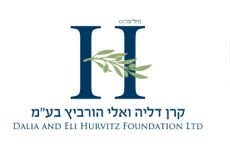Conference Materials: The Eli Hurvitz Conference on Economy and Society 2014
- Publication Date:
- Cover Type: Online book | Hebrew | English abstracts available
- Center: Eli Hurvitz Conference on Economy and Society
Research materials prepared for IDI’s Eli Hurvitz Conference on Economy and Society (formerly the Caesarea Forum) in 2014.
IDI’s Eli Hurvitz Conference on Economy and Society (formerly the Caesarea Forum) has been held annually for the last 22 years. The annual conference is the culmination of an extensive process of in-depth study designed to build the foundation for open, fruitful, and intensive discussion and interaction between senior government decision-makers and leading figures from the academic world, the Third Sector, and the business sector. The Conference is named after Eli Hurvitz, z"l, Founder of Teva Pharmaceuticals, who served as Chairman of IDI's Board of Directors from 2002–2008. On this page, you will find the materials prepared by the research teams in advance of the 2014 conference.
The conference is made possible by the generosity of
The Dalia and Eli Hurvitz Foundation

The Eli Hurvitz Conference on Economy and Society (formerly "The Caesarea Economic Policy Planning Forum"), now in its 22nd year, has established a unique tradition of professional, reliable, profound, and unbiased deliberations about core issues of Israeli public life. Over the years, it has dealt mainly with the appropriate socioeconomic policy for the government to adopt. In recent years we have witnessed a substantial improvement in government ministries’ ability to plan and define policy. That is why this year we chose to focus on the executive branch’s ability to get things done and its influence on the economy, starting from the understanding that the government’s ability to implement the policies it has decided on is currently the greatest challenge on the road to increasing economic growth, reducing social gaps, and dealing with the root problems of Israeli society and the Israeli economy.
The annual conference is the pinnacle of extensive work that included meetings with decision-makers and the sessions of six heterogeneous research groups that drafted policy recommendations in six areas: regulation, legal corruption, innovation, education, civil service personnel, and productivity. Each of the research groups addressed a different aspect of the government’s ability to get things done—latitudinal topics and test cases ranging from devising policy to implementing it.
- Regulation: Traditional “command and control” regulation is the prevalent method of regulation in Israel today. The relations between the public, the regulatory authority, and the regulated entities are characterized by a high degree of mutual distrust. This climate of distrust hampers the government’s ability to operate, because it must invest great efforts in formulating detailed rules and in measures for enforcing them. The business sector’s distrust of the government is a disincentive for investment in areas that will be strongly affected by future regulation, which is inconsistent and unpredictable. There are also heavy costs entailed in complying with specific rules and in reporting on their implementation. The working group, directed by Dr. Assaf Cohen, maintains that the addition of self-regulation and co-regulation to the regulator’s toolbox would be an important step towards enhancing the government’s ability to get things done and industry’s ability to make plans and carry them out. It would also help develop trust between the regulator and the regulated entities.
- Legal Corruption: Boosting the effectiveness of the public sector is considered one of the most significant reforms a government can pursue in order to help raise the quality of life and standard of living. Rampant public corruption severely compromises a government’s ability to achieve this objective and undermines the performance of the public sector. The working group, led by attorney Yoav Segalovich, focuses on legal corruption, sometimes referred to as “white corruption” (actions perceived by decision-makers and public opinion as tolerable corruption, even though perhaps they should not be tolerated) and as “gray corruption” (actions about which there is no consensus among decision-makers and public opinion as to how corrupt they are). Their report proposes an initial framework for understanding the causes of legal corruption and strategies for dealing with it.
- Innovation: In most countries, strategies for growth and social development increasingly emphasize innovation as a key factor in ensuring comprehensive and sustainable growth. When it comes to innovation, Israel’s ability to leverage its many advantages (including an innovative culture, knowledge-based industry, an educated society, and a strong global brand) and forge a growing and evolving socioeconomic system that serves all its citizens requires action in both the global and local arenas. The working group, led by Dr. Leonid Bakman of the Israel Innovation Institute, identifies innovation as a broad and multidimensional arena that is not restricted to high-tech and proposes a program based on existing support mechanisms.
- Education: The Ministry of Education, backed by the government as a whole, has a longstanding commitment to equal opportunity in education and to eliminating disparities in the education system. It recognizes that achieving this objective requires affirmative action so that differential budgets will provide a solution to the special needs of pupils from impoverished socioeconomic backgrounds. The report drafted by the working group, which was headed by Prof. Moshe Justman of the Van Leer Jerusalem Institute, presents the underlying principles of differential funding of the education system, looks into why previous attempt to implement it have met with only limited and inadequate success, paints the current picture, and suggests principles for differential funding that could deal with the challenges that have stood in its way thu
- Human Resources in the Public Service: The working group, led by Doron Cohen, focused on possible tools for improving the Israeli civil service, especially service units and their personnel. Its report examines how the service provided to citizens can be enhanced, starting from the idea that the public administration in Israel can realize its potential for greater efficiency by paying attention to two important aspects of revamping the organization from the ground up. The first aspect is the need to improve the motivation for public service; the second, to improve the performance of the field units—that is, the units that actually provide services—and to assess their output by integrating external evaluation (by the public and interested parties) with internal evaluation (by workers and managers).
- Productivity: Average productivity in Israel and its rate of growth are low relative to those in the developed world. It is true that the employment gap between Israel and most of them has been closed, but the same is not true of the disparity in labor productivity, which has if anything grown larger. The working group, led by Prof. Zvi Eckstein, focused on the causes of low productivity—a low level of capital investment, of overall technological development, and of efficient production—and drew up policy recommendations for increasing productivity in Israel.
We will meet, listen, and express our own views in the plenary sessions, working groups, and official and unofficial gatherings All of us—government ministers, Knesset members, senior ministry officials, academics, private sector executives, and journalists—will roll up our sleeves and work to enhance the economic and social resilience of the State of Israel.
Yarom Ariav
Director, The Eli Hurvitz Conference on Economy and Society
English summaries of the recommendations and full Hebrew reports for each of the work teams can be found below.
-
Legal Corruption
Recommendations (English)
Full Report (Hebrew) -
Human Resources in the Civil Service
Recommendations (English)
Full Report (Hebrew) -
Productivity
Recommendations (English)
Full Report (Hebrew)

